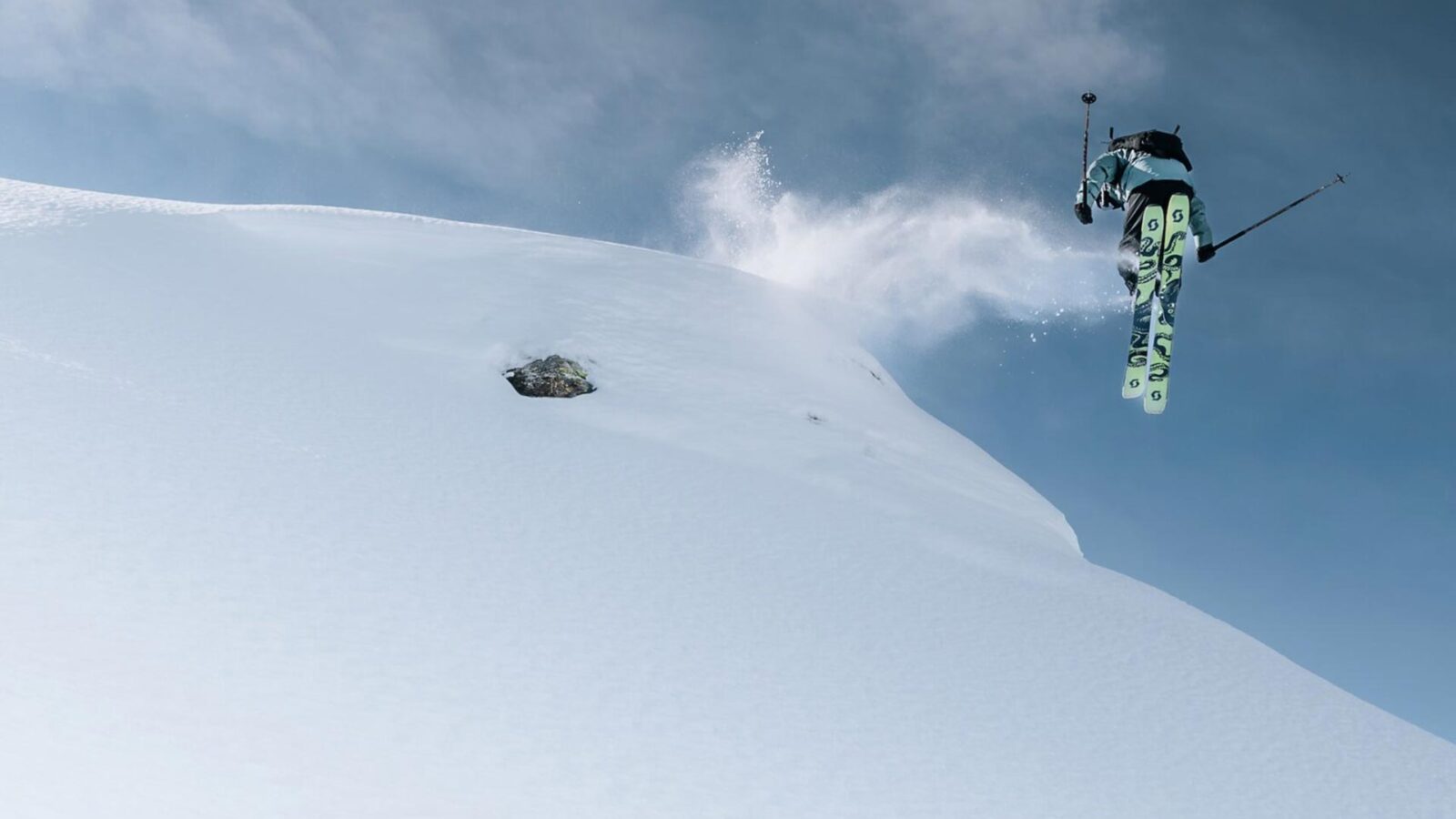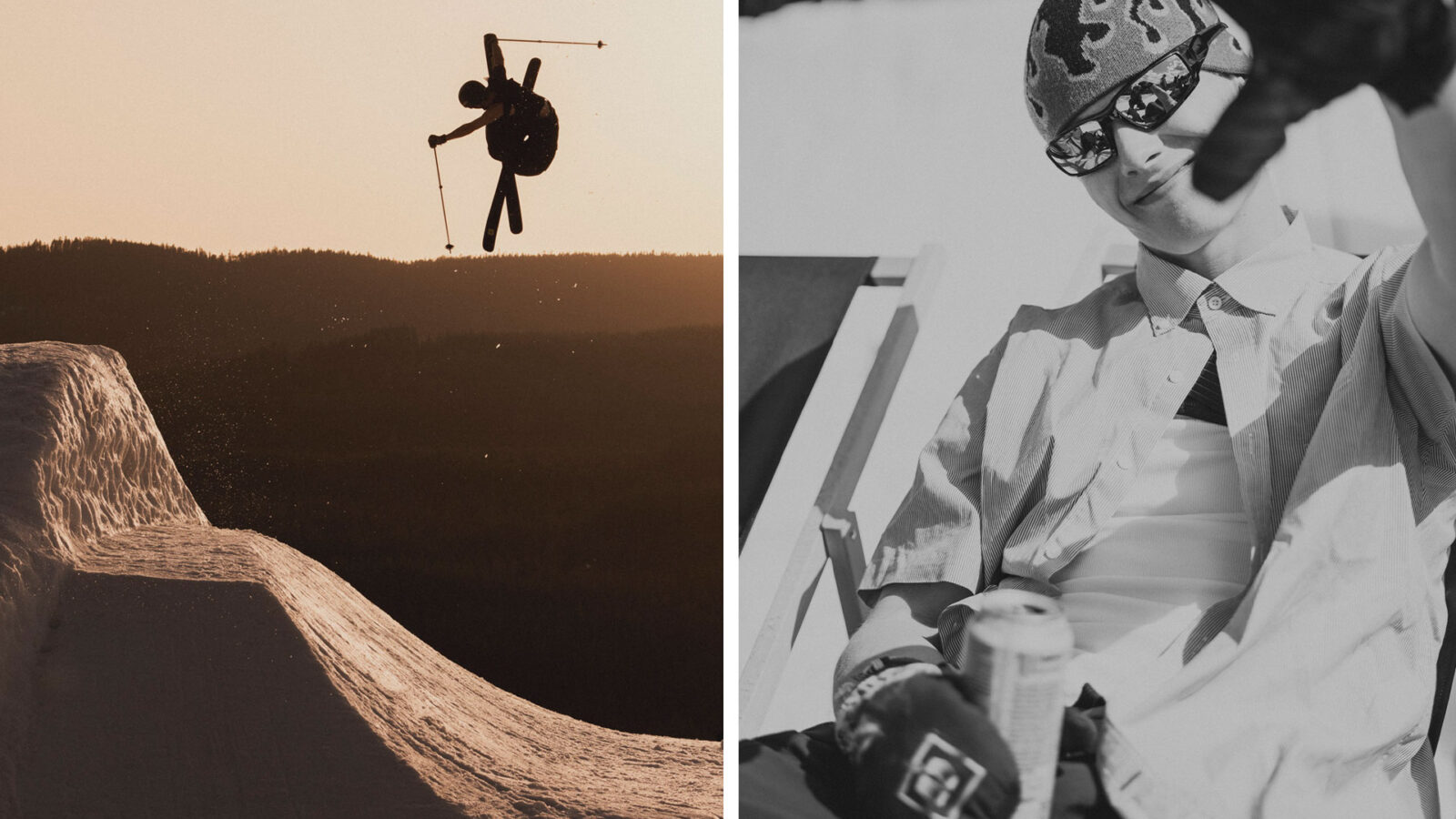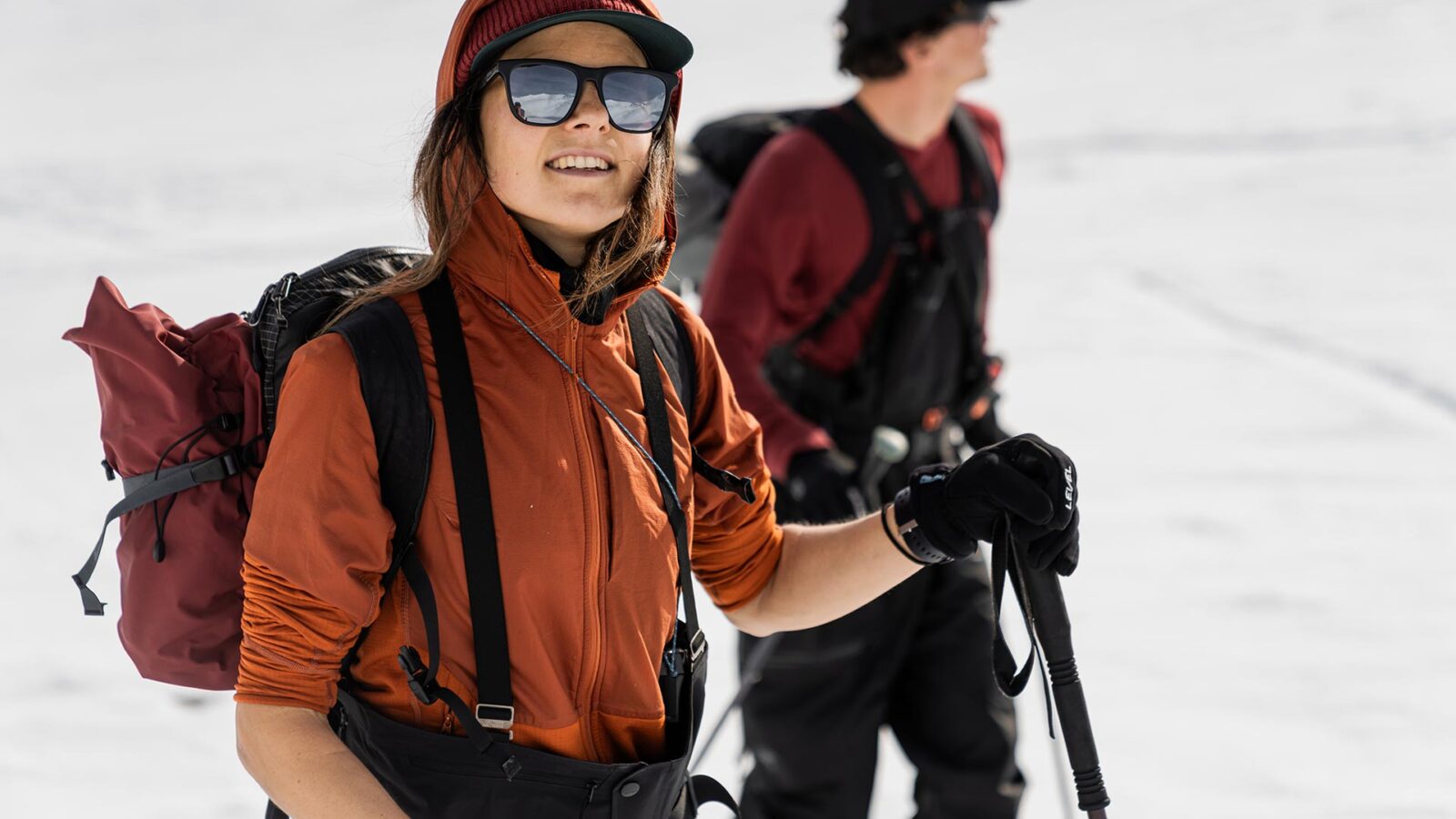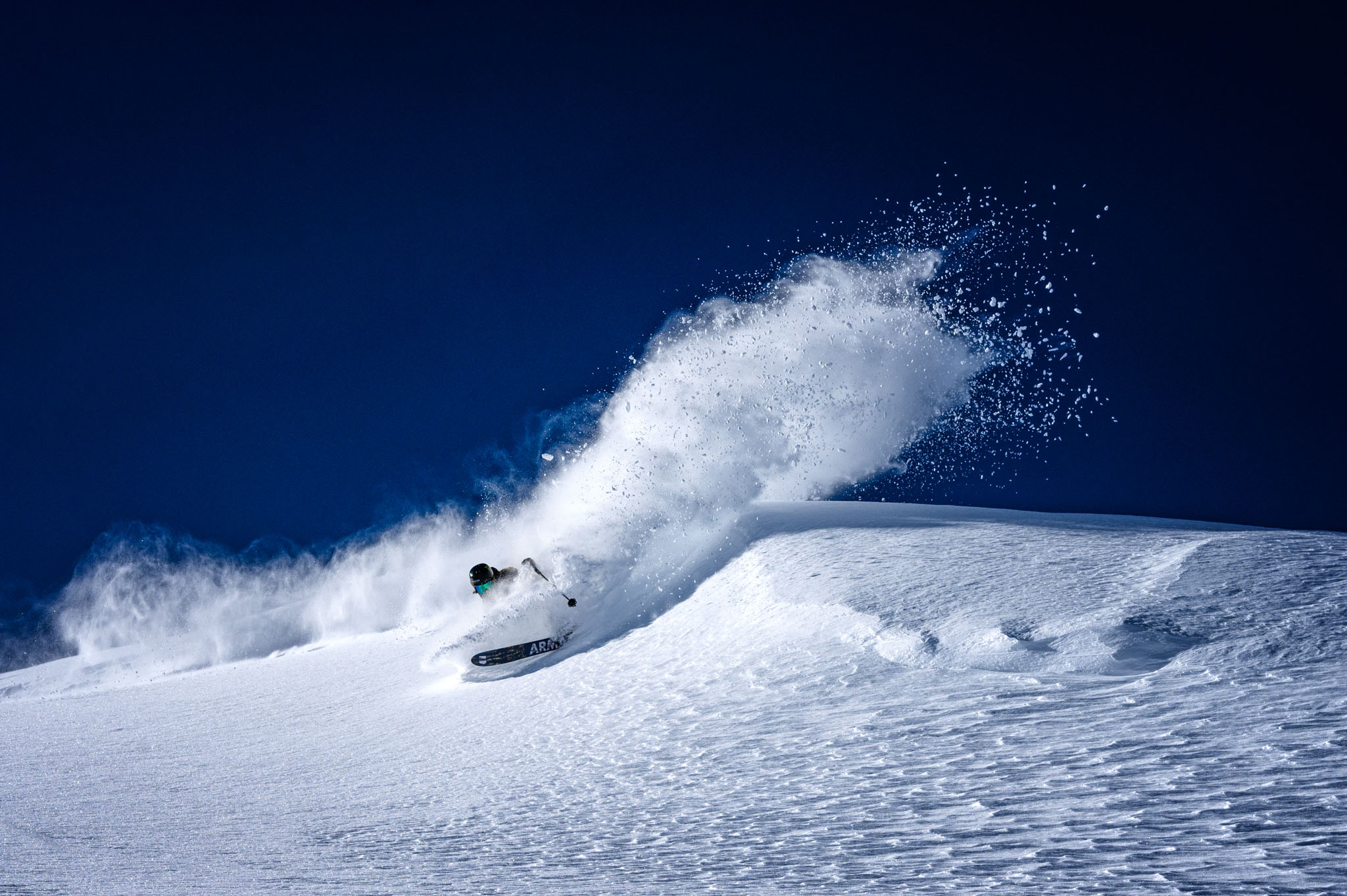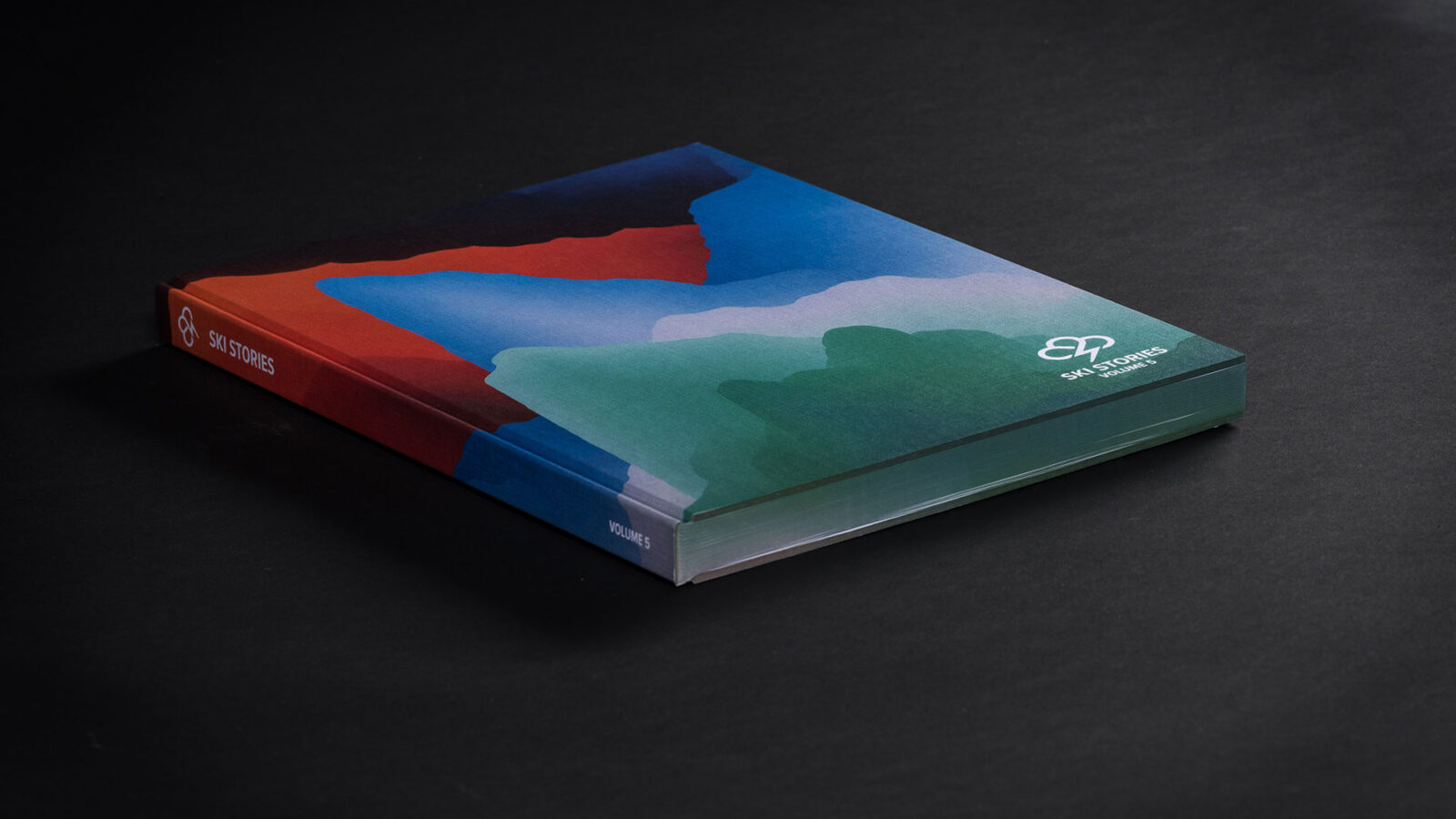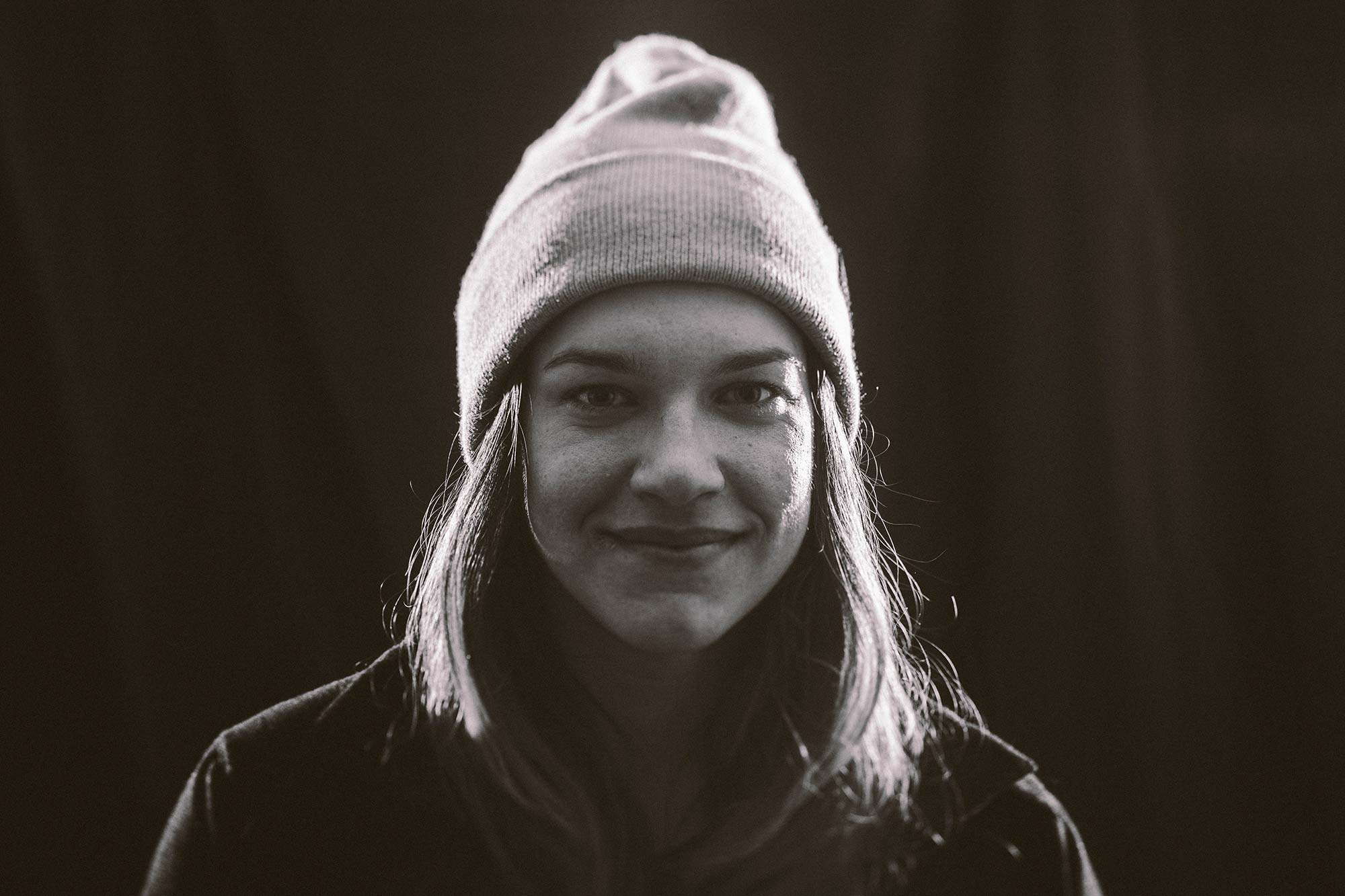
Stories
HighlightMurderously charming
Dialogue: Arianna Tricomi
This article has been adapted from the Winter 2019 issue of the Downdays Magazine.
Use the Mag Finder at the bottom of this page to find your free copy in a ski shop near you.
A friend of mine once described Arianna Tricomi as “the charging Italian who is murderously charming.” It’s a fitting description for a young woman who emanates fierce passion for whatever it is that she puts her mind to. Be on her good side, and she’ll be like a mother and a sister to you at the same time. But watch out that you don’t get on her bad side, because she won’t have any qualms about telling you how it is. That’s the passionate Italian in her, and I’m totally down with it, because Arianna sticks all that passion into her skiing, and then some.
Whether pillow hunting in Japan, ski touring all day and night in Norway or surfing effortlessly down the formidable Bec De Rosses, Arianna has a pure love for skiing, and for doing it her own way. Last season, this no-compromise attitude helped her ascend to the very top of the Freeride World Tour rankings. But after spending a week getting to know her better while shredding powder together in Hakuba, it was her thoughtfulness and generally good-hearted nature that really made me want to interview Arianna.
// Interview: Mark von Roy //
Hi Arianna! First up, why don’t you tell us about your origins, where you are from and how you started skiing.
My dad is originally from Sicily and my mother is half Viennese, half Neapolitan, so I have quite a bit of south Italian blood in me. My mother was a World Cup ski racer and even took part in the 1980 Olympics in Lake Placid. She never wanted to leave the mountains, so I grew up in the mountains and started skiing early on. As a kid I raced as well, and also started telemarking at six years old. I was never really good at racing until I was about eleven, and then suddenly I experienced a big improvement. Later, I was even in the national team for a while. On the one hand I had hopes of succeeding, on the other I was also a little rebel who preferred going surfing in the summer. At the age of sixteen I stopped racing, even though I’d won the last three races. I think maybe the trigger for that decision was that a friend of mine had recently lost his life in an avalanche. That made me realize that I should actually just do what I really want to do. It was not such an easy time for me.
Was it around this time that you also discovered slopestyle skiing?
I always preferred jumping and skiing powder to racing—my mother had introduced me to all aspects of skiing. Daniele, the friend I mentioned earlier, was one of the best park skiers in Italy and maybe, in some way, I wanted to continue what he couldn’t do anymore. Back then it wasn’t easy to get better in slopestyle because there were no real parks anywhere. We built our own jumps, even though we had no idea what we were doing. There were quite a few crashes and some injuries, but I am glad to have experienced that wild period. Later we started getting parks, but FIS also got involved and with it, all the rules and uncomprehending trainers—exactly the things that I always hated in racing.

"Arianna Tricomi - Athlete Profile"
Arianna Tricomi
Born: 1 August 1992 in Bozen, Italy
Hometown: Alta Badia, Italy and Innsbruck, Austria
Home resort: Alta Badia and mountains in Tyrol
Hobbies: Skiing, telemarking, surfing, biking, hiking, exploring the world
Sponsors: Scott Sports, Atomic, Mons Royale, Alta Badia, Dalbello, Marker, Thule,
Surftolive
Contest Results:
1st Freeride World Tour Hakuba 2019
2nd FWT Kicking Horse 2019
1st Overall FWT 2018
1st FWT Hakuba 2018
1st FWT Andorra 2018
1st FWT Verbier Xtreme 2018
2nd FWT Kicking Horse Golden BC 2018
3rd Overall, FWT 2017
1st FWT Andorra 2017
1st FWT Haines, Alaska 2017
1st FWT Fieberbrunn 2016
3rd FWT Alaska 2016
3rd FWT Overall 2016
“Rookie of the year” FWT 2016
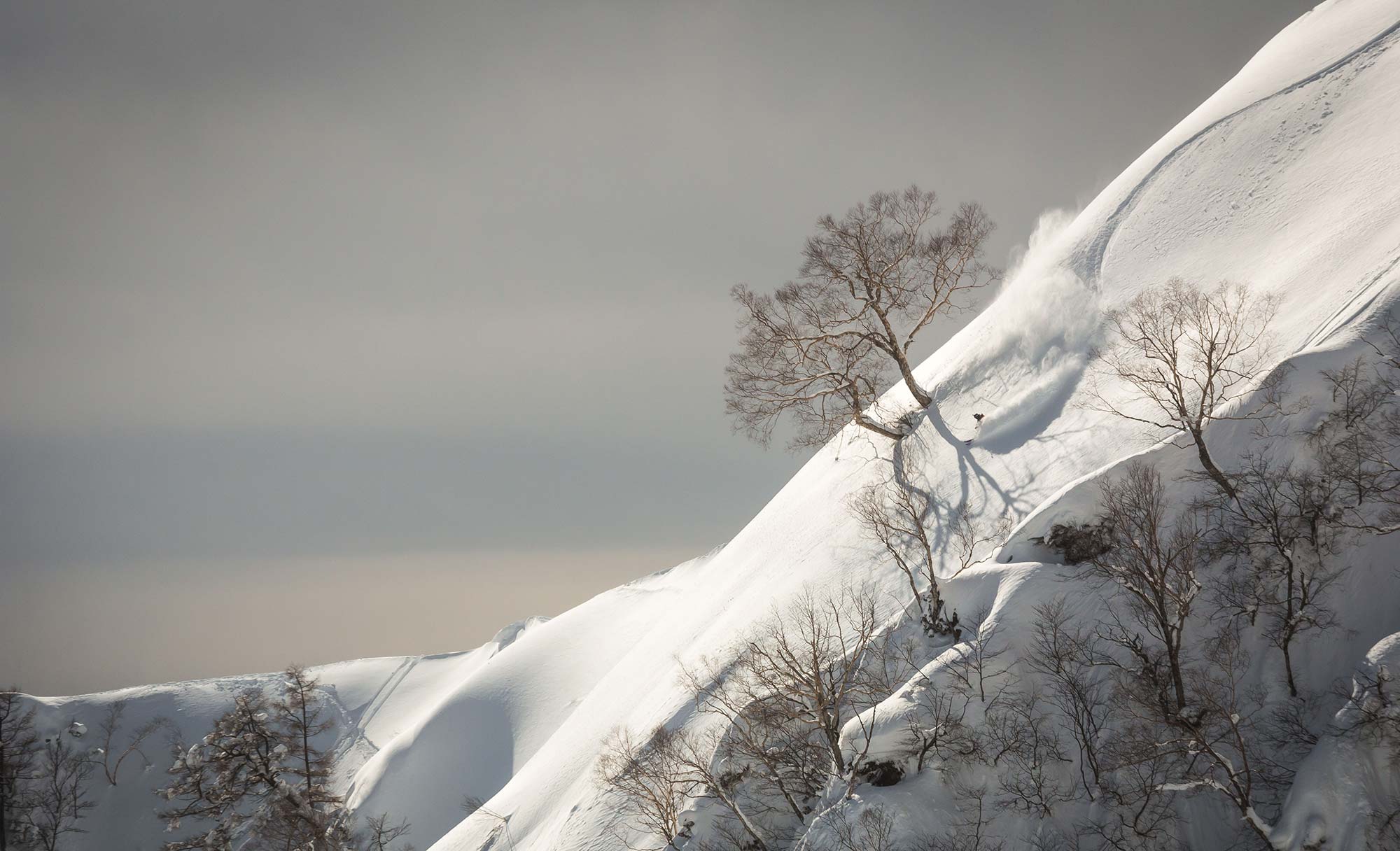
Ari finds fresh tracks in Hakuba, Japan. Photo: Mark von Roy
But you still continued taking part in slopestyle contests for a few years. Why?
For a while, things went really well for me in slopestyle. I got third at the Austrian Open and second at the Mayrhofen Open. That’s why I started competing at the first FIS World Cups, but that was a catastrophe. In Silvaplana the course was really bad, and training was at 7:30 in the morning when it was -17°C. A good friend of mine broke her femur that day. That’s when I asked myself, “Why am I even doing this?” I enjoyed skiing and jumping off-piste far more anyway. On top of that, as part of the Italian team you had to pay everything yourself as well. I was 20 years old and pretty good, but not good enough that I had any hopes of making it right to the top. So I decided to stop competing in slopestyle, and at first I had no idea what I should do.
How did you find out freeride competitions were your thing?
After my last slopestyle World Cup, I took part in a 2-star Freeride World Tour Qualifier in Goldeck, in the Kärtnen region of Austria. I had no idea what actually went on at an event like this. Everyone else was studying the face carefully with binoculars, while I just decided that I would ride down somewhere in the middle of the venue. Right out of the start gate there was a cliff, so I started off skiing switch, and tried to do a switch 180. Of course, that didn’t work out at all. I was totally pissed, collected my skis, and just flashed down the rest of the run without really looking where I was going. At the bottom I caught some air, went huge and was somehow able to land it. At the finish I was totally demoralized and started crying. That’s when the organizer of the Open Faces event came to me and said, “Your run was a little strange, but you can definitely ski. I’m giving you a wild card for the event in Kappl.” At the next event, I brought my mom along for support. I still didn’t really have an idea for a line, and ended up just surfing a snow wave that I saw, and it earned me second place. That’s when I knew that this was what I wanted to do.
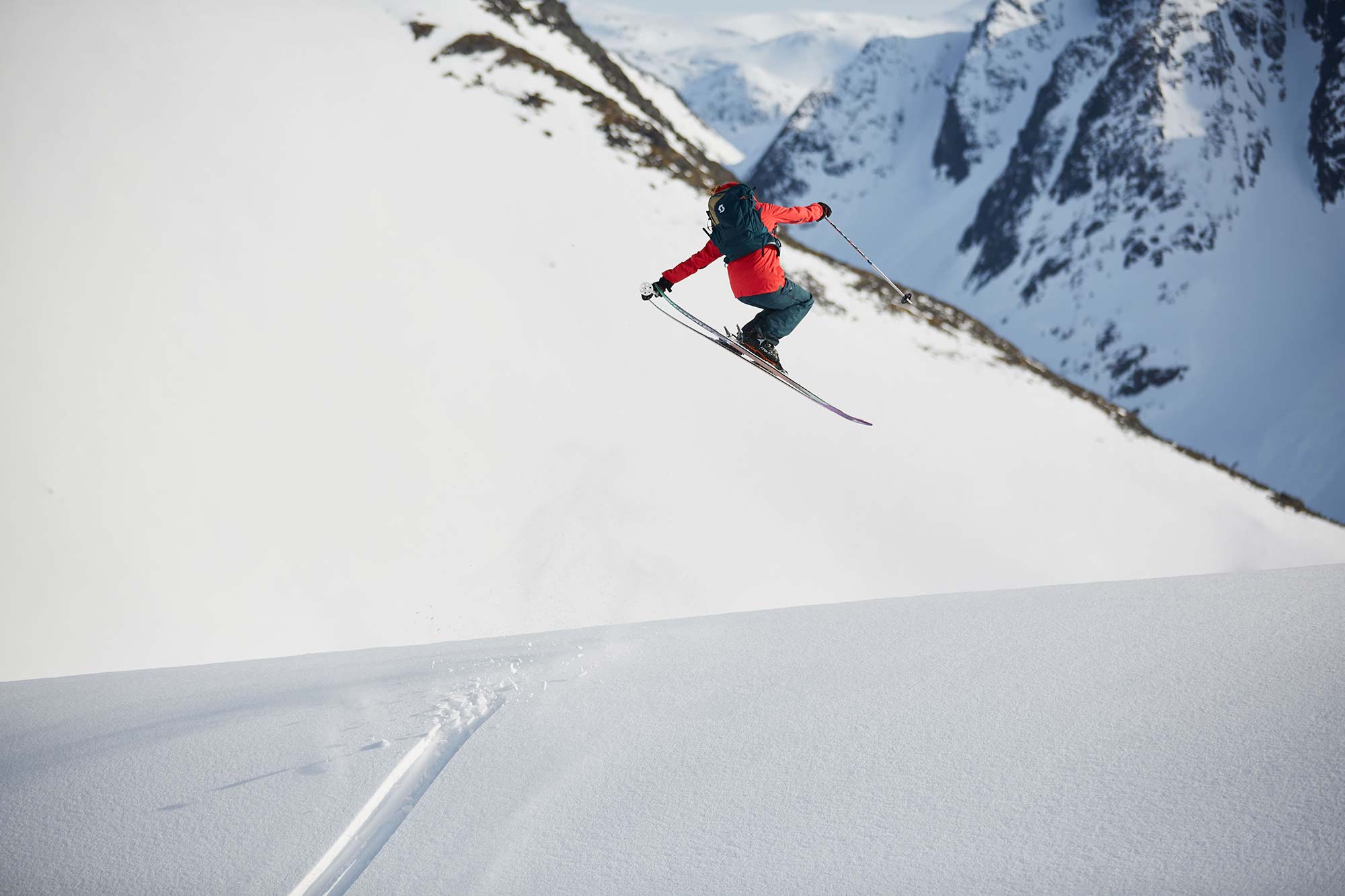
Tickling tail last spring in Bergsfjord, Norway during the filming of "La Luce Infinita." Photo: Nicola Grigis
How did your experience with Freeride World Qualifier events continue?
At my first contests I wasn’t even aware that a World Tour existed, but I really liked the events, and they were a perfect excuse for me to keep on skiing and competing. The winter after my first contest was a very snowy one, which played into my hand. I still didn’t fully understand the concept of line choice, but I did a 360 in every run. With this strategy I was always able to get onto the podium, but due to my relatively easy line choices, I never won. That year I ended up missing the qualification for the World Tour by two or three places. All in all, it was a great experience traveling around, meeting new people and a lot of crazy parties. On my second season in the qualifiers I approached it with more focus and concentration, and was able to finally qualify for the World Tour.
How did you end up learning about line choice?
In my first year on the FWQ I would just quickly borrow binoculars from one of the other riders to get a look at the face for a second, but I didn’t know what to do with the information. So I just started asking the other riders, “How do you pick your lines?” and “How can you tell where you are at in the line?” After the first season, I used some of the prize money to buy my own binoculars and started spending a lot of time looking through them, even in summer. Through binoculars everything looks different: wider, narrower, longer, shorter. Sometimes you think that there’s enough room for six turns in a certain spot, but there ends up only being room for two turns—or vice versa. While going out to do normal freeriding, I started looking at lines and trying to ride them exactly the way I’d planned, in order to learn how that worked. Everything else came about naturally, and at every contest I learned more about how to stay oriented in my lines. During my second year on the FWQ, I still wasn’t picking out complicated lines. I preferred to know exactly where I was and ride my line cleanly, rather than getting lost somewhere in the rocks. The motto “Keep it simple!” still works for me today. I look for lines with flow, because I don’t like to traverse. I think that’s one reason why things have gone so well for me on the FWT. I’m always sure where I am, so I can always ride with speed. Even on the Bec des Rosses, I’m always looking for some kind of playful line to ride.
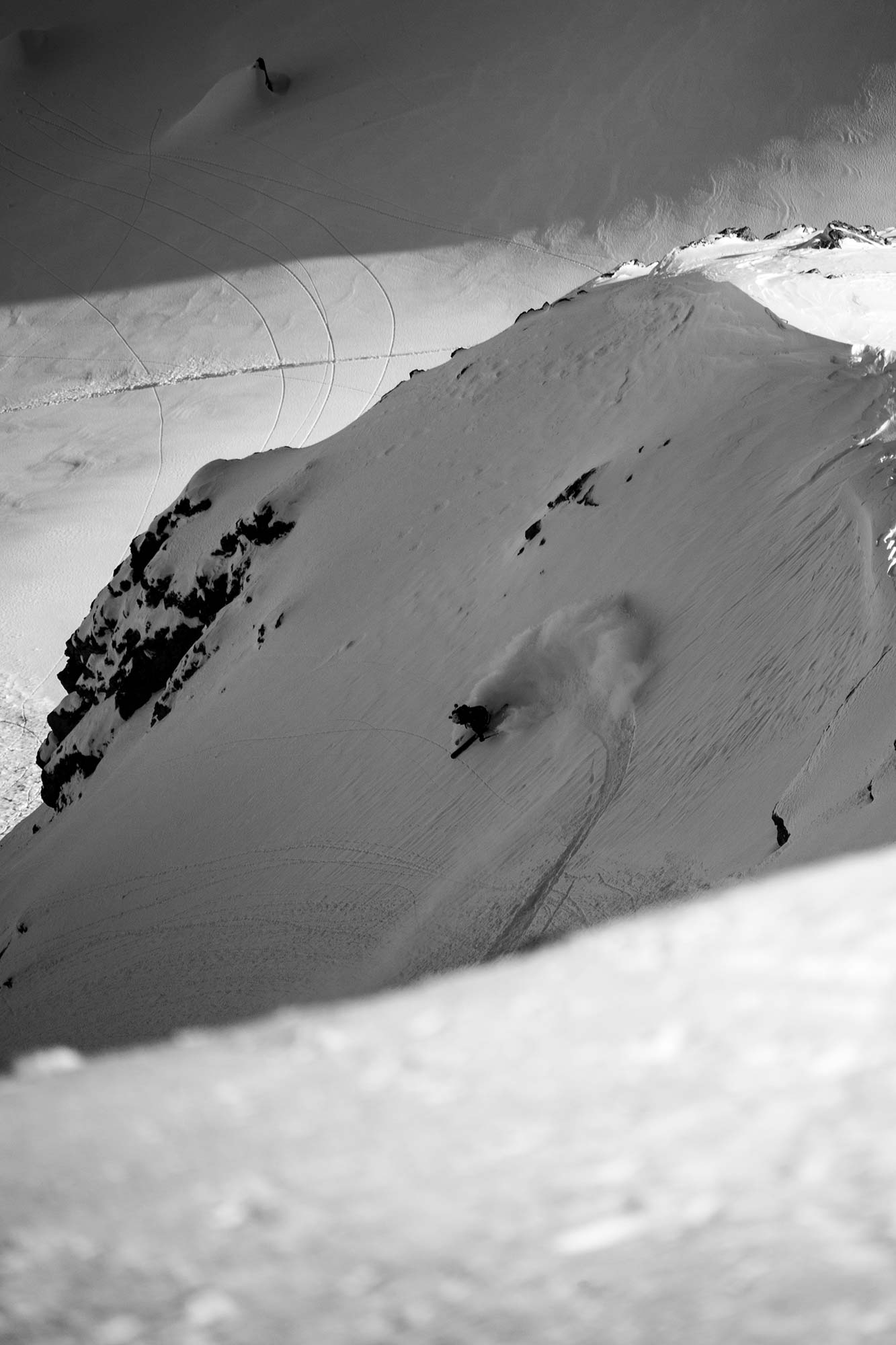
Ari is always looking for the playful line — even on the daunting slopes of the Bec des Rosses. Photo: Dom Daher/Freeride World Tour
Was there something else that helped you to win the title last winter?
I had finished up my university studies, which definitely was very helpful mentally. I’m now a trained physiotherapist, and I know that I can always find work in this field. That allowed me to focus fully on skiing. Besides that, over the past two years I had the honor to ride a lot with “Projekt Pommes” and their crew of friends, who I learned a lot from. It’s really refreshing to ride with those guys, because they look at the mountain in a different way. I learned a lot in particular from my boyfriend Sven, my unofficial coach.
Who or what is Projekt Pommes?
It’s a Swiss, a German and an Austrian guy who all moved to Innsbruck to study at the university, just like me. But actually they came to Innsbruck because they wanted to ski. They’ve been skiing all their lives, with a huge amount of passion for the sport. They’ve got more love for skiing than anyone else I know—and I know a lot of skiers. The way in which they interpret the mountain is what really makes Projekt Pommes special. The first time I saw them, I thought, “That’s how I want to ski!” They ride so playfully, it’s like an art. For two years I saw them around and was fascinated. They ride for themselves, not for Instagram or for sponsors. They just want to go home happy and satisfied in the evening, that’s all that matters. Riding with them is important for me, because I’m in this professional-skier world so much now, and the Project Pommes guys always bring me back down to earth and remind me of why we love skiing so much in the first place.
The motto "Keep it simple!” still works for me today.
What does winning the overall FWT title mean to you, and what are you most proud of in the last seasons?
It was always a point of contention with my father that I was spending so much time skiing. For him it was extremely important that I go to university, and I’m very thankful to him for that. But it was also great when I was able to show him that I could earn money with skiing as well. When I won the tour, my dad totally flipped out, and started telling everyone that his daughter is a world champion. He was so happy! For me, the best part about last season was just how much I was able to go skiing. I ride because I enjoy it, not because I want to win. One special moment on the tour was when I landed the 360 in Andorra. I had always wanted to do that on the tour, but there had never been the right spot or moment for it. In Andorra it was perfect, and I told Sven, “I’m going to do a 360 right there!” It wasn’t to win, it was easy for me!
What does a contest day look like for you?
Actually, it’s pretty chill. I try not to get stressed. Before the contest, I’ll go ride for a few laps if it’s possible. I don’t usually get tired when skiing, but sometimes it takes a while to warm up and get into my rhythm. Of course, I’ve always got some butterflies before my run, but that’s a good thing. This year, the only time I was really nervous beforehand was at the Bec des Rosses; after all, I had the golden jersey [indicating the current leader in the overall ranking]. Luckily, I was together with my parents and Sven in a little chalet where I could let go of my nervousness. At the riders’ hotel, I probably would have had to act cool the whole time, and the nervousness would have built up inside of me. On the contest day, I was totally relaxed. I was the first women’s starter, and it was just a contest between me and the Bec, which had beaten me twice before. This time I won the fight.
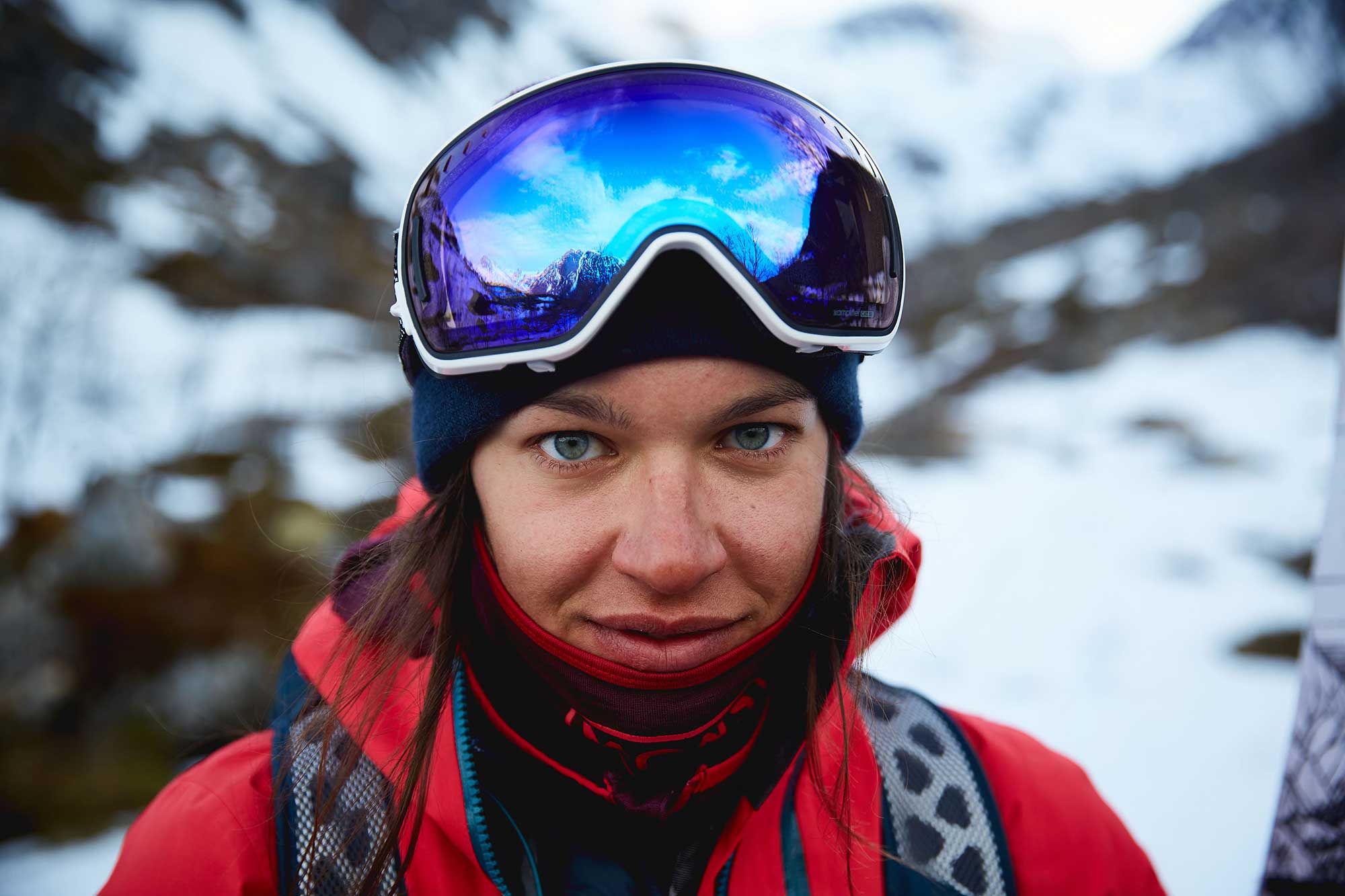
Photo: Nicola Grigis
What do you think about the Freeride World Tour in general?
It’s a bit difficult at the moment because there are so many different riders and riding styles. On the one hand there are the classical big mountain riders, on the other hand the backcountry freestylers, which makes the sport quite diverse. On the contest faces as well as in the judging booth, it’s hard to get everyone on the same page. I think it someone does a trick where someone else just jumps straight, that’s simply a matter of progression, and deserves to be rewarded. But in general, no one who gets to ride on the FWT should be doing any complaining. We get a hotel room, food, a ski pass and get to go skiing. It’s a ton of work for everyone else behind the scenes on the tour. The guides are on the mountain all night to control the slopes, and it’s similar with the media crew. The judges have to sit in the cold all day, and the marketing people don’t have it any easier. I think that Nicolas Hale-Woods and his team are doing a really good job.
You belong to the younger generation on the FWT. Tell us about that group.
Last season I spent a lot of time with Craig Murray, Berkley Patterson and Grifen Moller. We first got to know each other and went skiing together in Japan, and then kept up the connection throughout the whole season. Japan started off really well, with three days of blue skies and incredible Japanese powder. The mountains in Hakuba look like something out of a video game, these intense jagged peaks, and if you’re okay with walking for a bit, there’s an unbelievable amount of spines you can access. Later, the boys came to Innsbruck to visit me for a week, and afterwards I showed them around Europe for a little while. I find them really refreshing because they’re so stoked on skiing. They’re also very well-behaved young men, always friendly and fair. And they’re only 19 years old. In Innsbruck they went shopping and helped with cleaning, they were really great guests! They are definitely a win for the tour.

La Luce Infinita - Tales From the North
You found a great way to wrap up last season. Tell us about your Norway trip!
To put it simply, it was great. I think that’s the right word for this project—not extreme or crazy. It was great to be out in nature and share this amazing experience with my best friends. The smiles after every run in this beautiful landscape, and this unbelievable light—it stays light for so long, and we were so excited to ski, that we didn’t even know if it was day or night anymore. For two weeks we were living a timeless existence. We cooked together, partied, enjoyed the scenery and did a ton of skiing. It was very authentic and good for the soul. I took over the organizational part, and Marco Tribelhorn did the creative stuff, the filming and the story. I hope that our film “La Luce Infinita - The Infinite Light” reflects the wonderful vibes from this trip. I’d be very glad to bring more projects like this to life in the future.
To wrap things up, what advice would you give to young freeriders who are dreaming of becoming professionals?
Go skiing as much as you can, and in every way and fashion. Ride on piste, ride in park, give telemark a try! Get used to riding all kinds of terrain and absorb all the different aspects of skiing. I think that in the end, freeriding is basically a mix of everything. And you need a lot of experience in different terrain that can only be accumulated over many years. Even I don’t have all that much experience, and so I’m always very cautious in the backcountry — it’s not a playground out there! The mountains are beautiful, but they can quickly turn dangerous, and you should never underestimate the risks. You also have to learn how to turn back from lines. It’s better to ski until you’re eighty, than to die early.

